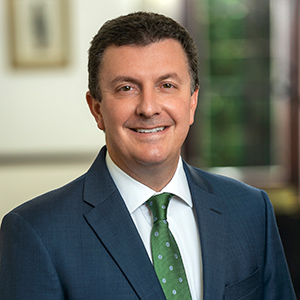Newly Minted Adults: It’s Never Too Early for Estate Planning
Congratulations, you are now 18, a legal adult. You can vote, you may be getting ready to head off to college, your first “real” job, the military, Peace Corps, etc. You are free from your parents’ “bonds,” well in the eyes of the law anyway.
Being “free” from your parents, however, can result in legal issues for the newly minted adult. When you were a minor, your parents had the right to act for you and make decisions for you both for financial and healthcare matters. You may or may not have liked their decisions, but at least someone was able to make decisions for you if necessary. For example, your parent may have made the decision to remove those two extra teeth while you were under anesthesia at the oral surgeon’s office. So, who makes that decision for you now that you are an adult? Who can help you by accessing your accounts and paying your credit card bill if you are without capacity or are simply going to be out of town for weeks on a trip with friends before heading off to college, or even after graduating college? Your parents, maybe, but don’t count on it. Once you reach age 18 and you are an adult, it is possible that your physician, dentist, bank or credit union will still respond to input from your parents but they may not, particularly if your parents do not have a long history with your healthcare provider or financial institution.
So what can you do? As a young adult, you may think it is way too early in life to consider estate planning. However, estate planning goes beyond wills and trusts and making arrangements for gifting of your property at death. Estate planning includes powers of attorney and it is never too early to consider the use of powers of attorney once you reach age 18. What is a power of attorney you ask? Powers of attorney are legal documents used by one person to delegate powers to another. Delegated powers generally fall into two categories: (1) powers related to financial matters and (2) powers related to healthcare and end of life decisions. In both cases, you, as the delegating party, are able to pick the person or people (referred to as your agent(s)) who are authorized to act for you. You are able to choose the powers you give the people you select. You can choose very broad powers, which essentially let the person “step into your shoes”, or you can choose limited powers. Financial powers of attorney can be effective immediately when you sign the document, or later upon the occurrence of a triggering event, for example if you are determined to be incapacitated by two physicians. Healthcare powers of attorney, or patient advocate designations, are effective only upon your disability—so mom or dad can’t force you to go to the doctor if you don’t want, so long as you have capacity.
So long as you have capacity, you can at any time change the agents you identify to assist you and/or the powers they have. Your agents need not be your parents but they should be people in whom you have the utmost confidence. The person you select to assist you with financial matters may be different from the person selected to assist you if medical decisions need to be made on your behalf.
So what happens if you don’t have a power of attorney in place? Well, it could be something as inconvenient as you being late to pay a bill because you are out of town and nobody has authority to access an account or transfer funds for you, or it could be as critical as a situation where you are incapacitated, even temporarily, and nobody has the legal authority to speak for you. Such situations could necessitate the involvement of the Probate Court to appoint a guardian or a conservator for you, or to take other action. In any case, court action, no matter if any emergency hearing is available, will take time and can be quite expensive, not to mention stressful. Financial and healthcare powers of attorney can eliminate that delay, expense and stress. And remember, with powers of attorney, you pick your agents and the powers you give them. Court-appointed agents may not be those who you would have selected and they may have more expansive powers than you would have given.
Anyone 18 years of age or older should absolutely consider executing powers of attorney for financial and healthcare matters, even if you think you are not ready for other types of estate planning. Kreis Enderle’s estate planning attorneys can assist you with the preparation of such powers of attorney on terms with which you are comfortable.
